Stock Watch: What's trending in the NBA
Welcome to the first installment of Stock Watch for the 2023-24 season, a look at what's been trending up and down in the NBA.
⬆️ Surging Magic
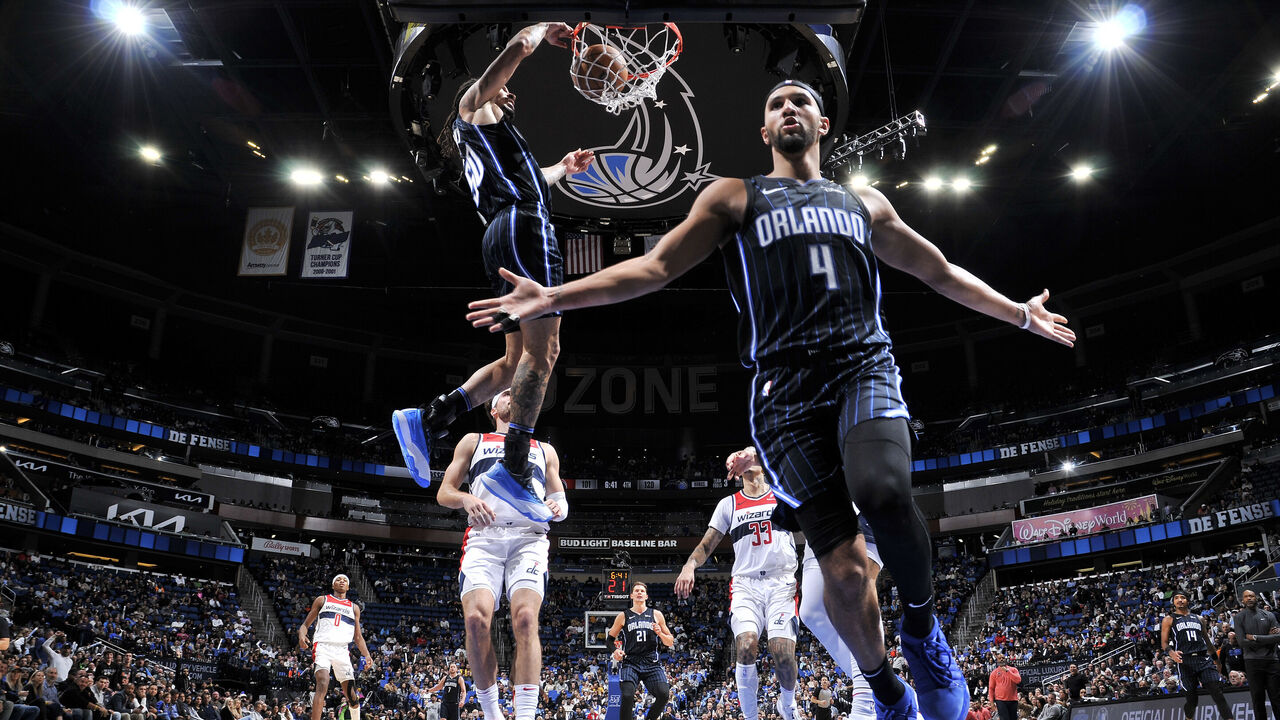
You'd be hard-pressed finding anyone who foresaw the Orlando Magic within striking distance of the East's No. 1 seed at the campaign's quarter mark. While the team's finished no higher than seventh in the conference over the last 11 seasons, the Magic increasingly resemble a side that could secure home-court advantage for at least the opening round of the playoffs.
Orlando's proven to be a formidable squad with wins over the Celtics, Nuggets, Bucks, and Lakers, and defensive improvements have been at the heart of its turnaround. Jalen Suggs has been a disruptor on the perimeter, Moritz Wagner is among league leaders in charges drawn, and even oft-injured Jonathan Isaac has made an impact in limited minutes off the bench.
An injury to starting center Wendell Carter Jr. could've derailed Orlando's playoff hopes. Instead, the aforementioned Wagner and former first-round pick Goga Bitadze have stepped in and given the Magic respectable minutes at the five. Bitadze ranks 14th in blocks (1.4 per game) and 17th in offensive rebound percentage (10.6) among players averaging at least 15 minutes per contest.
⬇️ Bulls' core
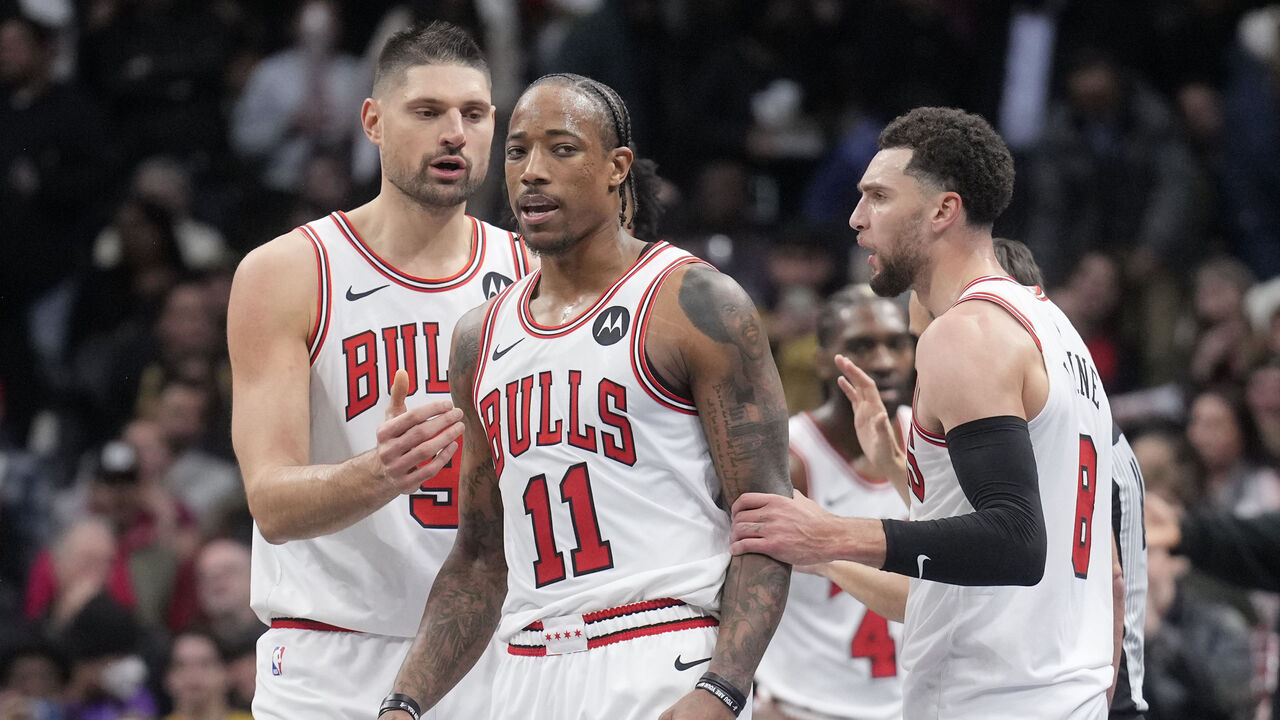
It didn't make any sense to bring back the Chicago Bulls' core for another run. The trio of Zach LaVine, Nikola Vucevic, and DeMar DeRozan have won only one playoff contest during their time together. They've never been a net positive when sharing the court, including this season's dismal minus-17 net rating.
Arturas Karnisovas' decision to hand Vucevic a three-year, $60-million extension this past summer was curious at the time, and 2023-24's been a struggle since Day 1: The team had a players-only meeting following a season-opening blowout loss to the Thunder, and things have continued downhill since. Chicago ranks in the NBA's bottom third in both offensive (26th) and defensive (22nd) efficiency. Only the Grizzlies and Trail Blazers own a worse effective field-goal percentage.
LaVine and Vucevic have voiced their frustrations. Meanwhile, DeRozan is on an expiring deal and there's no indication an extension's imminent. It's time to begin the teardown.
⬆️ T-Wolves' Gobert experiment
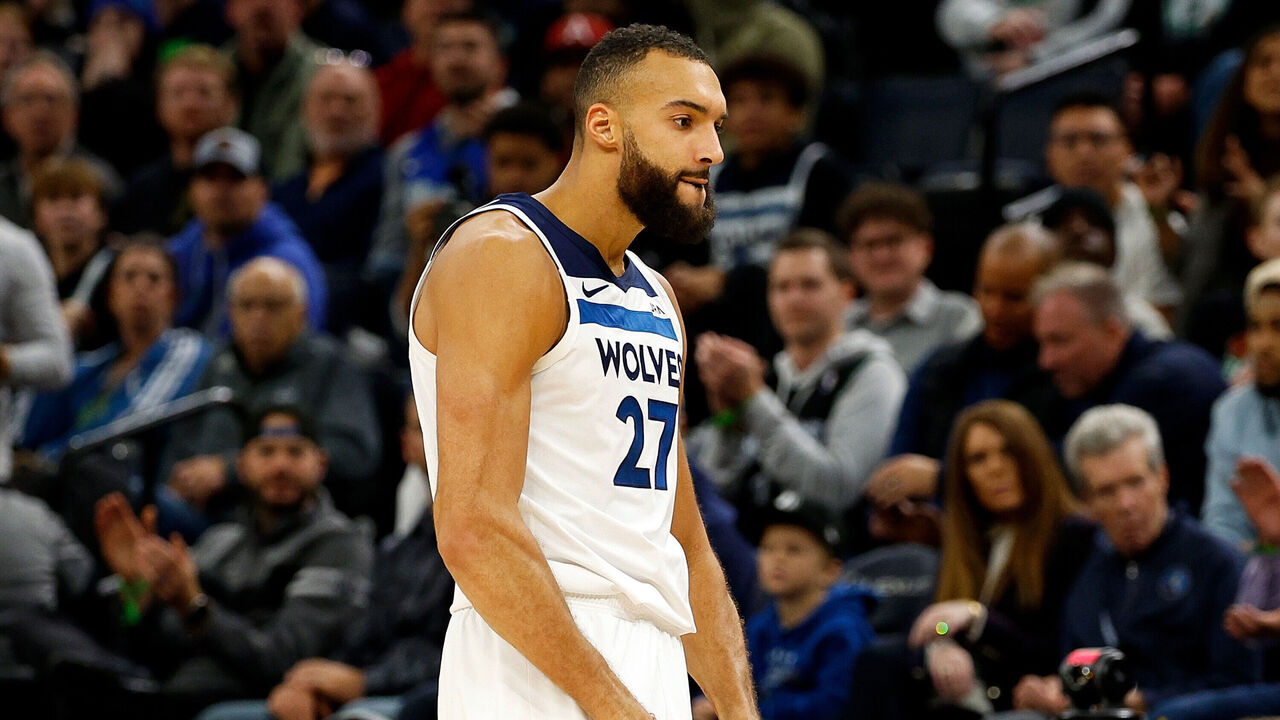
It was easy to write off the Minnesota Timberwolves' blockbuster trade for center Rudy Gobert after only one season. After all, when you trade five first-round picks for an elite rim-protector who set a career low in blocks as a starter while your team barely scrapes .500, finger-pointing should be expected.
And yet, Gobert's second season in Minnesota has been night-and-day different. His block numbers are back up to 2.4 per game and he's anchoring the NBA's No. 1 defense. Most importantly, the Big Three of Anthony Edwards, Karl-Anthony Towns, and Gobert are playing in harmony together after a shaky start. The trio own a plus-8.2 net rating when sharing the court, up significantly from plus-2.3 last year.
The promising core's strong play is why the Wolves lead the Western Conference at 14-4, and considering their success begins on the defensive end with Gobert, there's reason to believe it's sustainable. Once Minnesota gets defensive hawk Jaden McDaniels in the lineup and starts to figure out which bench pieces best complement the rotation, there's no reason why the team shouldn't be considered among the league's top championship contenders.
⬇️ Every Warrior not named Curry
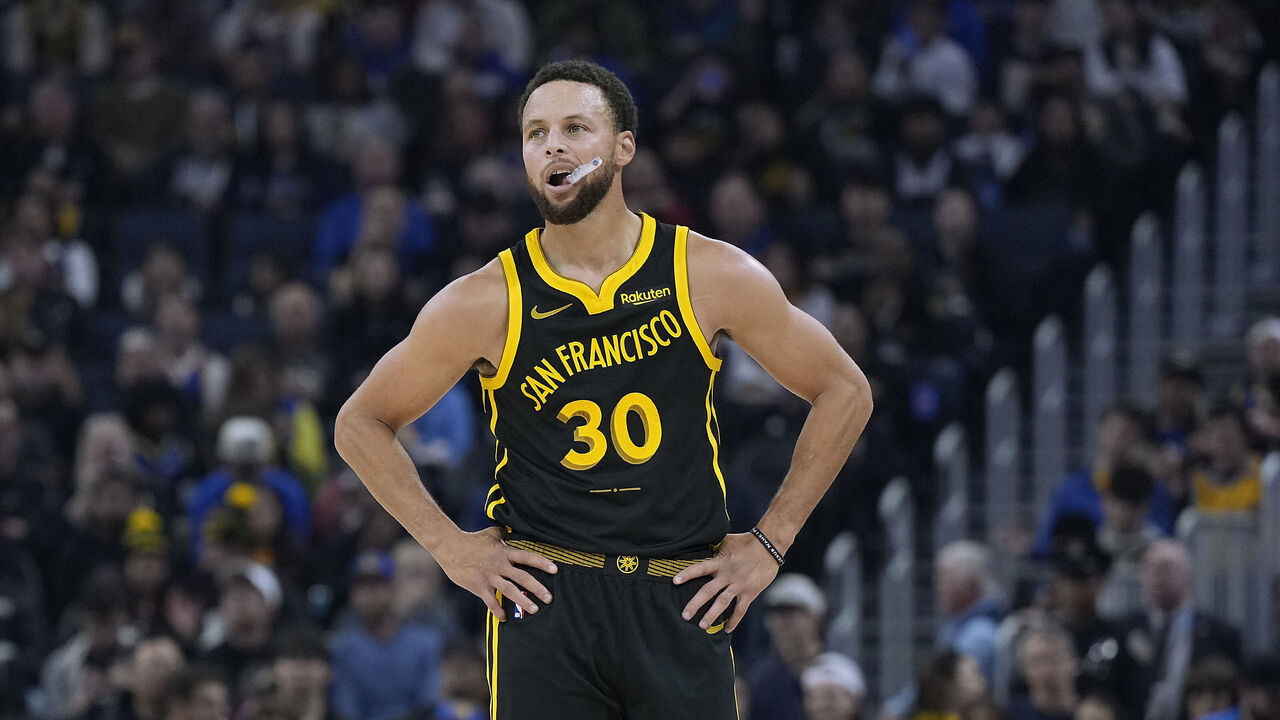
Despite starting to get up there in age, Golden State Warriors superstar Stephen Curry has looked exceptional early this season. Unfortunately, the same can't be said about any other veteran on the roster. Curry, 36 in March, is averaging 29.1 points on 47.6% shooting and 43.1% from three, while no other Warrior is averaging more than 16 points per game.
The two biggest culprits behind the scoring issues are Klay Thompson and Andrew Wiggins. The second Splash Bro's production has dipped massively: Thompson's averaging six fewer points per game from last year, and his 3-point percentage is down from 41.2% to 36.1%. Wiggins' regression is even worse: He's averaging career lows in points per game (12.8) and 3-point percentage (26.7).
With experienced wings struggling, the Warriors have turned to rookie Brandin Podziemski and third-year guard Moses Moody to play more minutes, and both have been effective in stretches. But for Golden State's dynasty to compete for a fifth title, Thompson and Wiggins must improve.
⬆️ Holmgren's ROTY case
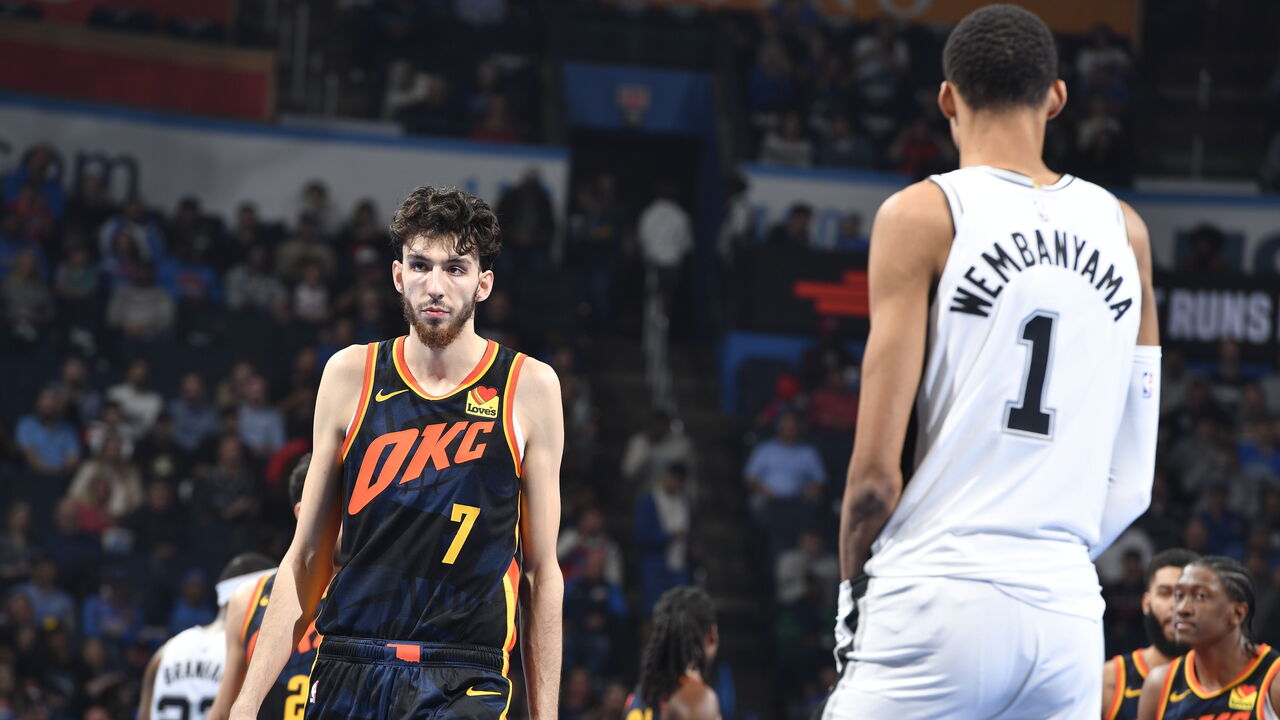
With so much hype around Victor Wembanyama, it was fair to assume the 7-foot-4 Frenchman was easily the draft class' best rookie and would easily be named Rookie of the Year. That's half right, so far.
Wembanyama is clearly a tier above his fellow draftees, but Chet Holmgren, drafted in 2022, is giving him a run when it comes to first-year prowess. Holmgren, who missed all of what should have been his rookie year with a foot injury, has been sensational for the surging Oklahoma City Thunder and a pivotal influence in their ascent up the West standings. While Wembanyama edges him slightly in per-game tallies, Holmgren is ahead everywhere else, including shooting splits, with a much more impressive 53.1/39.5/86.5 line despite taking 4.3 threes per game. Wembanyama attempts 5.3 tries from deep per game but is mustering splits of 43.7/27.1/82.9.
The Thunder's success as a whole is a factor, too, and can't be discounted. Team records haven't historically meant much in the Rookie of the Year race, but if a rookie's very influential on a competitive club, it'll likely swing the race in his favor, especially if the competition's neck-and-neck. If Holmgren maintains his production while the Thunder and Spurs continue to go in different directions, that may be enough for Holmgren to edge Wembanyama.
⬇️ Poole, Kuzma not a long-term fit in D.C.
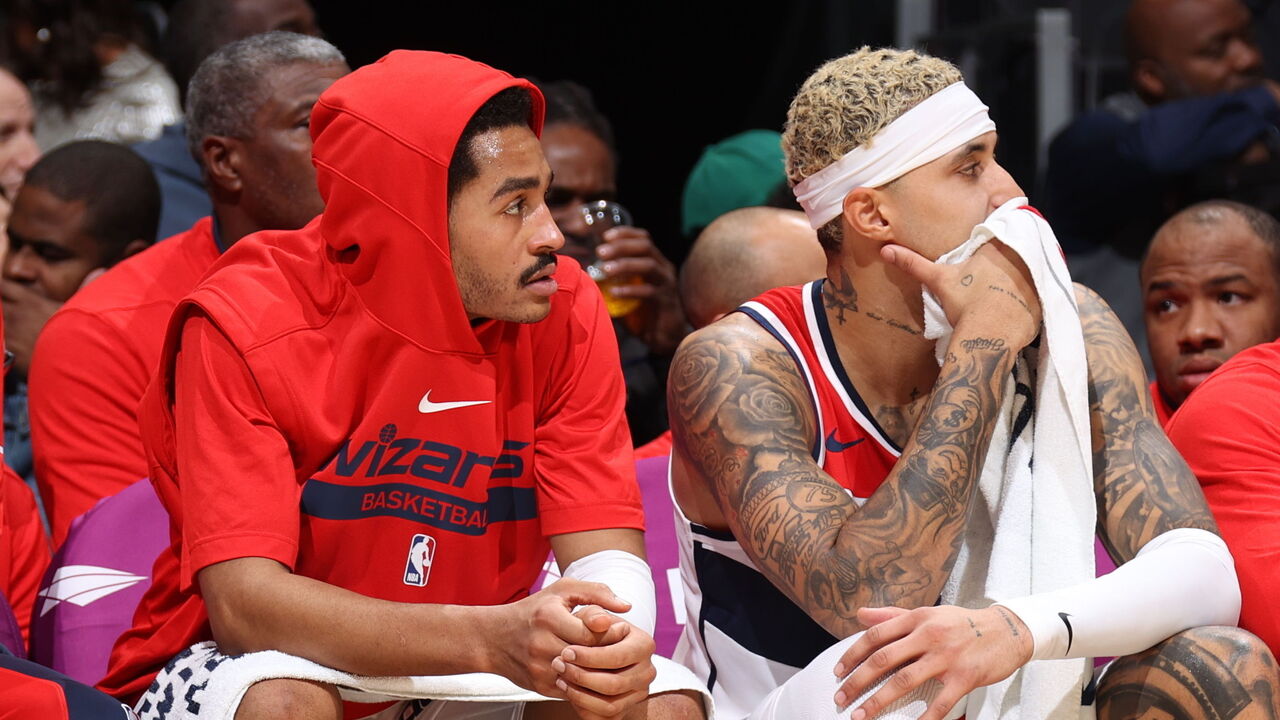
Nobody can truthfully argue they expected the Washington Wizards to blow away opponents this season. That was obvious the moment they shipped longtime franchise star Bradley Beal to the Suns, and even the most diehard D.C. fans knew this season would be arduous. And yet, the Wizards' lowlights might be lower than even worst-case scenarios imagined.
Now led by Jordan Poole and the re-signed Kyle Kuzma, Washington has more "Shaqtin' A Fool" moments this season than wins. Poole especially has had a nightmare start, a stretch highlighted by an apparent misunderstanding of how the clock works late in a 10-point game against the Bucks on Nov. 20 (Milwaukee won by 13). But embarrassing viral moments aside, the two simply seem far from a compatible fit.
Consider this: There are currently 229 two-man lineups across the league with at least 300 minutes together and none have a worse net rating than the minus-18.5 posted by Kuzma-Poole lineups. Their tendency to leak buckets is a key factor: Their 124.6 defensive rating is second-worst only to Hornets groups featuring Gordon Hayward and P.J. Washington. Further, with the Wizards specifically, Poole and Kuzma together only results in the team's fifth-worst offense (among two-man pairings with at least 150 minutes together). With both under contract through 2026-27, the Wizards have a lot to do to find a way to make this work.